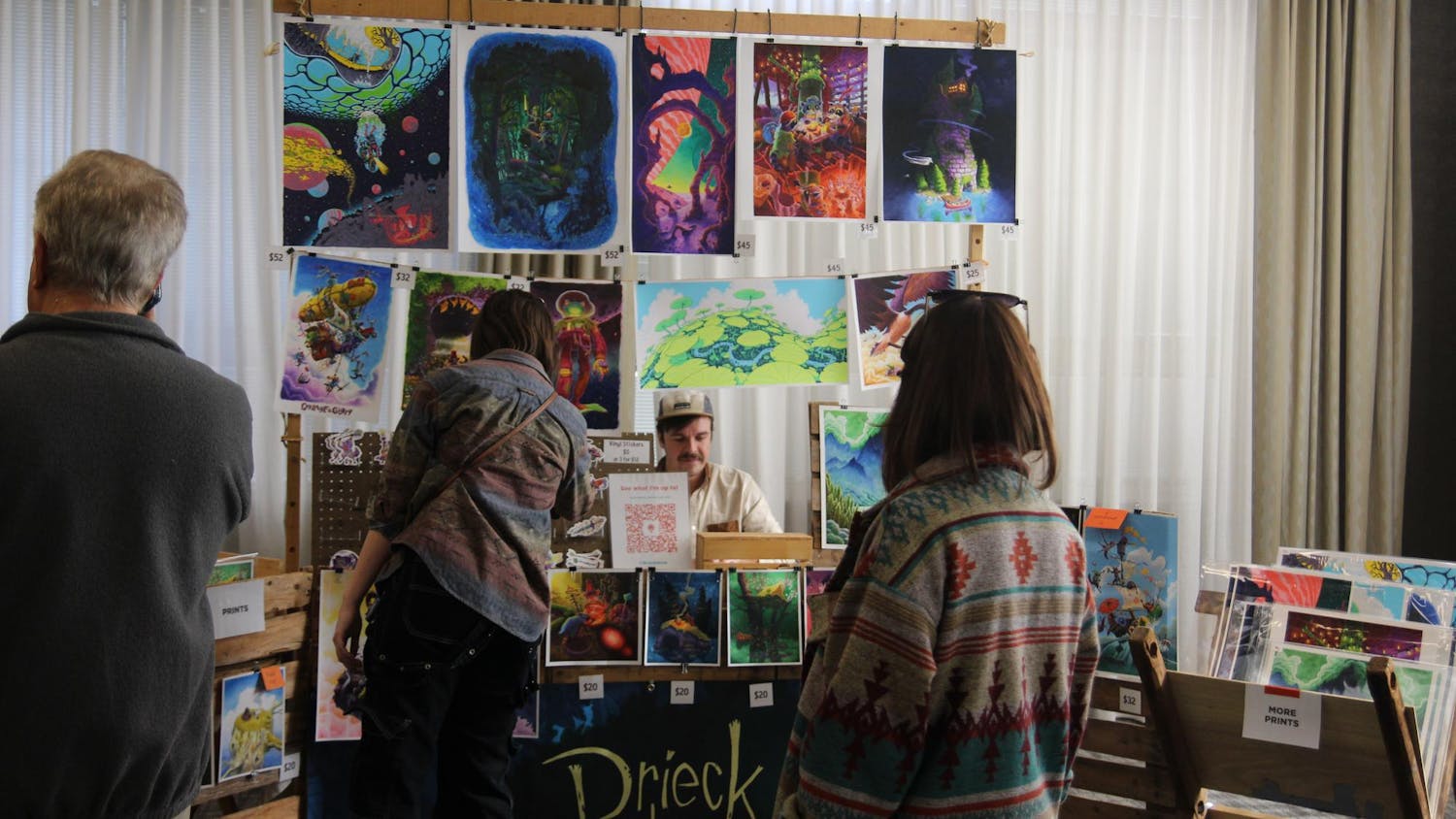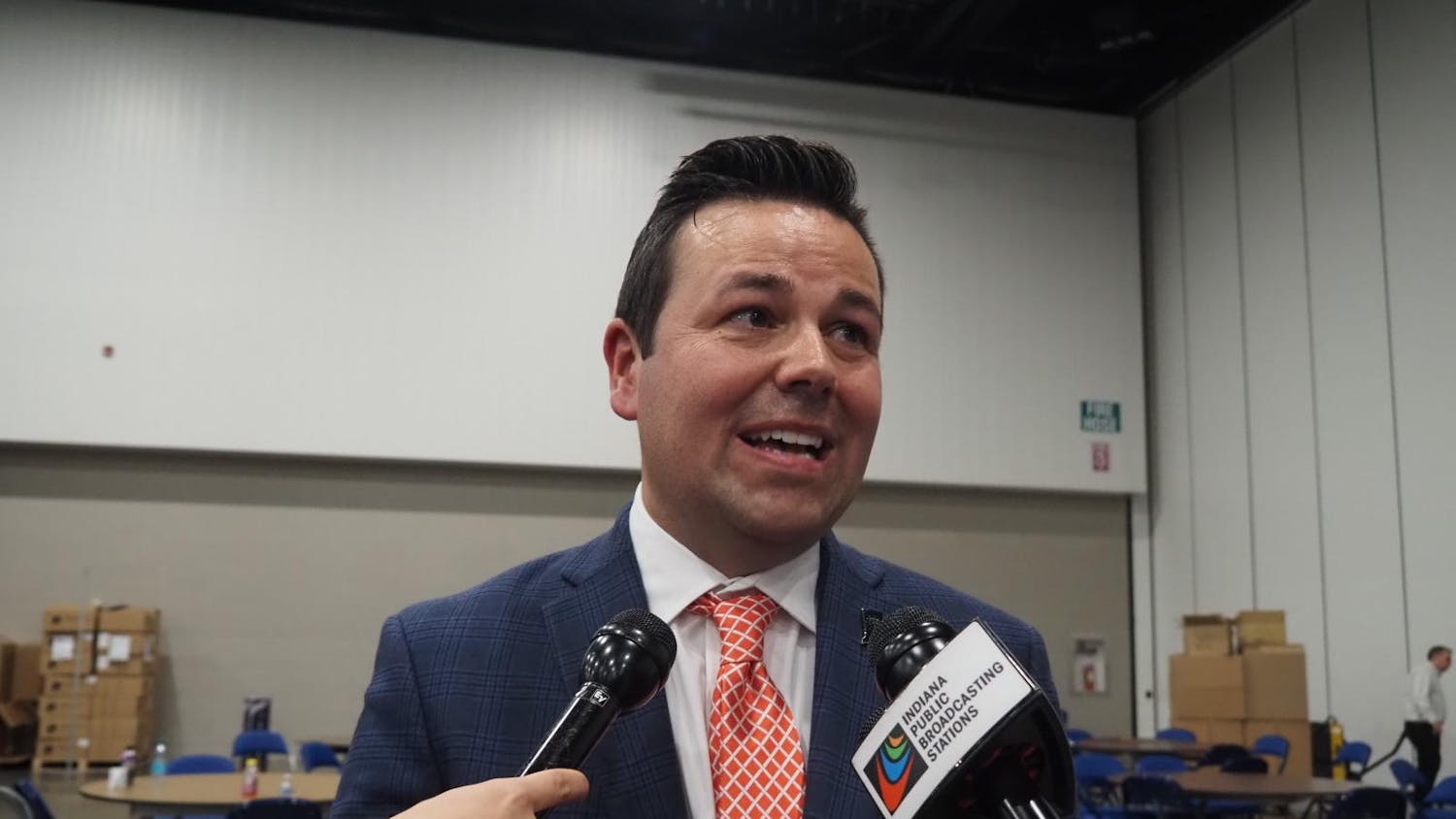Ever since Virgin Mobile USA launched its Chrismahanukwanzakah ad campaign, where characters such as a Hindu Santa and a gay
elf sing a happy song; people of all creeds sing along with the commercials and buy the ringtones during the winter holiday season.
Before the world starts celebrating this all-inclusive holiday, professor Janette Fishell, Rabbi Sue Shifron and professor Audrey McCluskey break down the separate histories and artistic expressions of celebration behind Christmas, Hanukkah and Kwanzaa.
Christmas
Christmas, or Jesus Christ’s birthday, is celebrated on Dec. 25, although the actual birthday of Jesus has been debated. But Fishell, a Jacobs School of Music professor and organist who teaches courses on church music and the history of sacred music and worship, said the importance of the holiday is its meaning.
She said Christmas is about peace, giving and goodwill toward man, ideologies that have become the hallmarks of the holiday. A couple ways Christians practice these ideologies are by giving gifts and singing songs.
“There are two types of Christmas songs – carols and secular songs,” Fishell said. “Both types form important associations for everyone around Christmas time. Carols tie back to ancient times when they weren’t written down and were never really intended to be sung in church.”
Over time, there has been a shift of popularity from sacred Christmas music to secular Christmas music, Fishell said.
“I think the secular side seems to be overtaking the religious side, and I think the secular Christmas song will continue to get more traction,” Fishell said.
One example of the old struggle between sacred versus secular Christmas music can be seen in Bing Crosby’s conflicting view of performing the secular song “White Christmas.”
“The song was sung by Bing Crosby in the movie of the same name, but at first he did not want to sing it because it was secular,” Fishell said. “He was a very devout man.”
Fishell said she hopes people will not only know the meaning of Christmas, but that they will also focus on it in everyday life.
“It is mostly important to recognize the ideas of Christmas, like peace, unity and stopping to look for the miraculous in the everyday,” she said.
Hanukkuh
This year, Hanukkah begins Dec. 21 and ends Dec. 29. Shifron, executive director of the Helene G. Simon Hillel Center, said the importance of the holiday has been skewed over time.
“Hanukkah is our most minor holiday,” she said. “Most people assume that it is a huge holiday when it actually is not.”
However, Shifron said it is still important to celebrate the story behind the holiday.
The Jews were under Syrian-Greek rule about 2,200 years ago. The Syrian-Greek king would not allow them to pray to their god, forcing them to pray to the Greek gods and placing statues of the Greek gods in the temple in Jerusalem.
In response to this oppression, Judah Maccabee and his brothers fought against the king. In the end, they won the battle and were able to take back control of the temple.
They rededicated the temple on the 25th of Kislev in 164 BCE, and they had enough oil to light the menorah for one day.
It was a miracle, though, that the oil lasted for eight days, hence the eight-day celebration.
Unlike Christmas, music and singing is not a major form of expression for celebrating Hanukkah, although there are some songs that highlight the holiday, Shifron said.
“Most of the songs are about the dreidel, the menorah or retelling the story,” she said. “They are sung primarily to remember the holiday and the symbols. Some popular ones are ‘Maoz Tsur,’ ‘Oh Hanukkah, Oh Hanukkah,’ ‘I Have a Little Dreidel’ and ‘Who Can Retell.’”
Kwanzaa
Kwanzaa, which means “first fruits of the harvest,” is a seven-day celebration of family, community and culture. This year, Kwanzaa lasts from Dec. 26 to Jan. 1.
In 1966, Ron Karenga, founder of the United Slaves Organization, a cultural nationalist group involved in the black power and civil rights movements, created Kwanzaa.
“He thought that we needed an African-centered ceremony that helps African-Americans connect to their African heritage,” said McCluskey, professor in the Department of African American and African Diaspora Studies and director of the Neal-Marshall Black Culture Center. “There are seven principles that are to be enacted each day of Kwanzaa. So, each day an event is to be planned that represents and symbolizes one of the seven principles.”
The seven principles – Umoja, Kujichagulia, Ujima, Ujamaa, Nia, Kuumba and Imani – mean unity, self-determination, collective work and responsibility, cooperative economics, purpose, creativity and faith, respectively. To celebrate these principles, the Neal-Marshall Black Culture Center has a Pre-Kwanzaa Celebration.
McCluskey said the celebration focuses on the arts of African-Americans and the African diaspora. The ceremony includes lighting candles to represent the principles.
After the candle ceremony, McCluskey said there will be performances by groups such as the Jazz Ensemble and the Neal-Marshall Black Culture Center Drama and Dance Ensemble.
There will be a culminating event called Taste of African Diaspora, which is a feast or unity meal with foods from Jamaica, Ghana and other African countries, McCluskey said.
There is also an art exhibit that opened Monday in the Neal-Marshall Black Culture Center library that features the work of four local artists. It will be open until Dec. 12. The Pre-Kwanzaa celebration is at 6 p.m. today, and all the events are free and open to the public.
Breaking down Chrismahanukwanzakah
Get stories like this in your inbox
Subscribe





